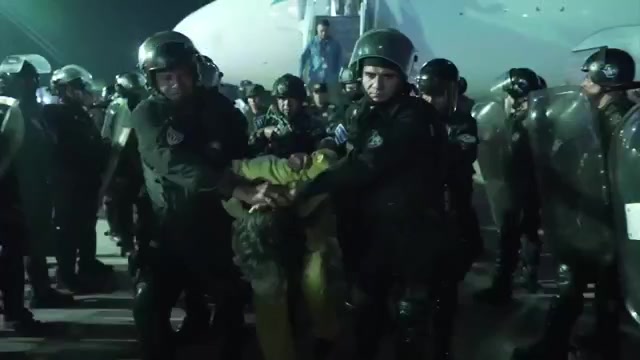ACLU Challenges Deportation of Venezuelans Under Alien Enemies Act
On Friday, the American Civil Liberties Union (ACLU) filed legal appeals to halt the deportation of Venezuelans detained in northern Texas, invoking concerns about the administration’s use of the Alien Enemies Act—a law from the late 18th century. The ACLU argues that the Trump administration is attempting to restart deportations despite Supreme Court restrictions regarding this legislation.
Legal Actions Taken by the ACLU
The ACLU’s legal efforts began with an emergency petition to both the Fifth Circuit Court of Appeals and the U.S. Supreme Court. During a hearing, one judge acknowledged the ACLU’s concerns but stated he lacked the authority to issue any orders. In an ongoing lawsuit, the ACLU is seeking to prevent the deportation of two Venezuelans currently detained at the Bluebonnet Detention Center, citing that allegations against detainees suggest ties to the Tren de Aragua gang. Under the administration’s enforcement of the Alien Enemies Act, these allegations could trigger expedited removals.
Historical Context of the Alien Enemies Act
The Alien Enemies Act has a contentious history, invoked only three times prior in U.S. history, notably during World War II for the internment of Japanese-Americans. The Trump administration argues that this act provides the authority to swiftly remove individuals identified as gang members, irrespective of their immigration status.
While the Supreme Court ruled that deportations could resume, it mandated that individuals slated for removal must have the opportunity to contest their cases in court with a minimum timeframe allowed for legal representation.
Response from the Judicial System
In recent legal proceedings, federal judges in other jurisdictions, including Colorado and New York, have implemented temporary bans on the deportation of detainees under the Alien Enemies Act. However, no such order was in place for the Bluebonnet facility in Texas, which is raising alarms among immigration attorneys and civil rights advocates.
District Judge James Wesley Hendrix, appointed by Trump, declined the ACLU’s request for an emergency order, citing ICE’s assurance that immediate deportations would not occur. However, the ACLU’s subsequent filing included statements from immigration lawyers asserting that their clients had received paperwork indicating imminent deportation.
Concerns of Due Process Violations
Representatives from the ACLU have highlighted troubling practices within the Bluebonnet facility. Some detainees report being pressured to sign documents in English without commensurate translation, and threatening remarks were allegedly made about deportation despite not signing these forms. ACLU attorney Lee Gelernt articulated concerns that individuals were being prepared for transport as deportations loomed.
Broader Implications and Ongoing Legal Battles
As Friday’s hearings unfolded, District Judge James E. Boasberg in Washington, D.C., echoed concerns about potential misconduct by the administration in disregarding prior legal protections for detainees. While the Justice Department argued that individuals slated for deportation would have at least 24 hours to contest their removal, uncertainty remains regarding the administration’s adherence to due process.
Additionally, a Massachusetts judge issued a permanent injunction preventing deportations of immigrants who have exhausted their appeals, highlighting the ongoing debates surrounding the treatment of individuals facing removal from the U.S.
Importantly, the humanitarian and legal ramifications of such deportations are immense, particularly for Venezuelans, many of whom face unsafe conditions upon return, as the country has not accepted deportations from the U.S.
Conclusion
The complex legal battle continues as the ACLU endeavors to protect the rights of Venezuelan detainees under the Alien Enemies Act while raising vital questions about due process and the administration’s enforcement practices. As the situation evolves, the intersection of immigration law and civil liberties remains a central point of contention in the broader discourse on human rights in the United States.

